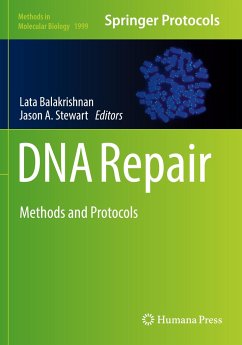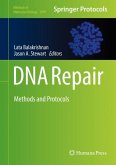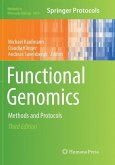The volume outlines techniques used to study the primary mechanisms of important DNA repair pathways. The chapters in this book are organized into five sections, each discussing a specific aspect of repair biology. Part I reviews the role of post-translational modifications of HDR, and DNA damage caused by defective telomere replication. Part II describes methods to detect and measure DNA breaks and proteins involved in DNA damage response. Part III talks about methods designed to measure DNA repair efficiency and characterize factors involved in the repair process. Part IV discusses various in vitro assays used to purify recombinant proteins that are used to study DNA repair enzyme mechanisms. Lastly, Part V focuses on methods to study the damage arising during DNA replication. Written in the highly successful Methods in Molecular Biology series format, chapters include introductions to their respective topics, lists of the necessary materials and reagents, step-by-step, readily reproducible laboratory protocols, and tips on troubleshooting and avoiding known pitfalls.
Cutting-edge and authoritative, DNA Repair: Methods and Protocols is an essential resource for novice and experienced researchers, and provides easily adaptable techniques to help them advance in their specific protein or repair pathway of interest.
Cutting-edge and authoritative, DNA Repair: Methods and Protocols is an essential resource for novice and experienced researchers, and provides easily adaptable techniques to help them advance in their specific protein or repair pathway of interest.








